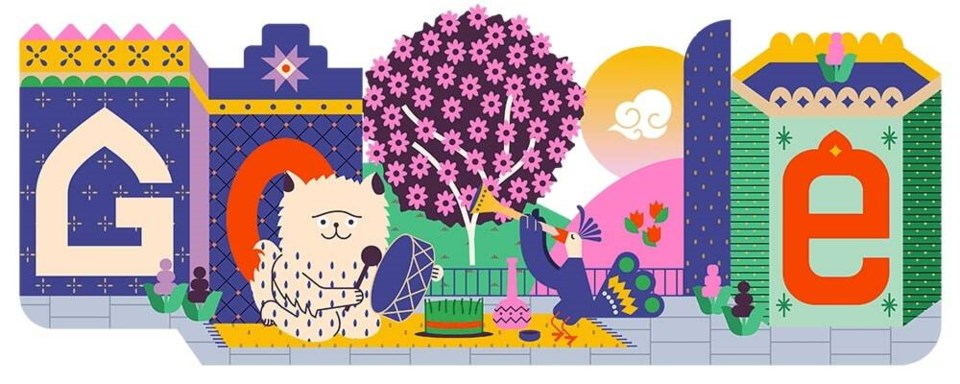The Google Doodle, designed for Nowruz 2024, is being displayed at the top of the search engine’s homepage to users in Canada, the U.S. and the U.K. for the first time – but not in Iran.
Google apparently isn’t displaying the artwork in Iran due to U.S. sanctions, which has led to backlash online.
Pendar Yousefi, an Iranian UX director at Google Translate, designed the doodle for Persian New Year, which falls on Tuesday, March 19.
To create the illustration, the artist said he drew inspiration from Iranian and Central Asian art. In a thread, Yousefi explained how the Doodle was designed.
“I am happy that the Doodle will introduce Nowruz to more people,” Yousefi wrote on X (formerly Twitter). “This year, for the first time, the Doodle will be shown in countries like Canada, the U.K., and the U.S.”
A number of users on X reacted to the design, with some expressing pride in Yousefi as an Iranian member of the Google team. But others criticized Google’s policy of not supporting business in Iran because of U.S. sanctions.
That policy has led to Iranian users being unable to view the Nowruz doodle, sparking further negative reactions.
Some of them commented that Nowruz originated in Persian history and is celebrated by millions across various regions. Therefore, if the art doesn’t show in Iran, they find it useless.
“Google made a design for Nowruz, by the way, the designer is also Iranian, but this design is not officially displayed in Iran!” user @Teeegra wrote in Persian. “When you open the following [web] address, a map will appear in the middle of the page that does not have Iran! It has Azerbaijan and Uzbekistan and… but not Iran! very shameless.”
According to Google’s supported countries policy, the company must comply with sanctions imposed by the United States Office of Foreign Assets Control, which restricts supporting businesses in Crimea, Cuba, Iran, North Korea, Sudan and Syria.
گوگل مثلا برای نوروز طرح زده، اتفاقا طراح هم ایرانیست ولی این طرح به صورت رسمی در ایران نمایش داده نمیشه !
— Teegra 🧝♀️𝕏 (@Teeegra) March 18, 2024
آدرس زیر را که باز کنید وسط صفحه یک نقشه میاد که ایران نداره!
آذربایجان و ازبکستان و .... دارد ولی ایران نیست ! خیلی بی شرفیدhttps://t.co/7T6kZ54PLC pic.twitter.com/UBvrXevnAj
Hamid Jafari is a Vancouver-based freelance journalist who writes about the Iranian community in Canada, art, culture, and social media trends. His work for the North Shore News is supported by New Canadian Media. [email protected]




